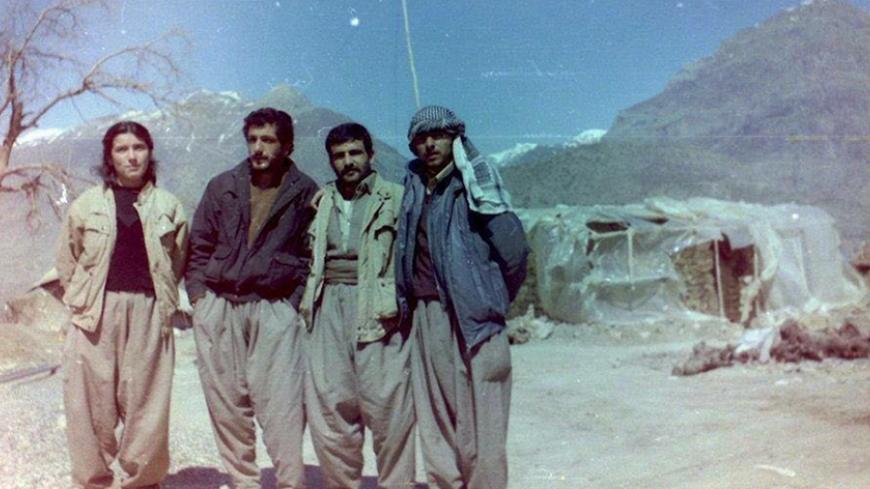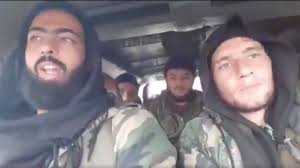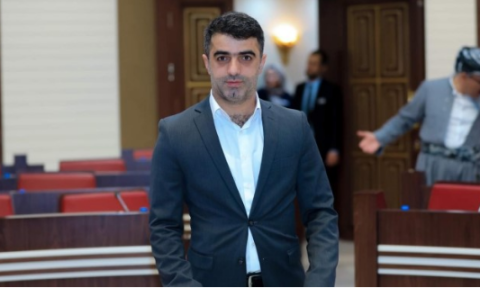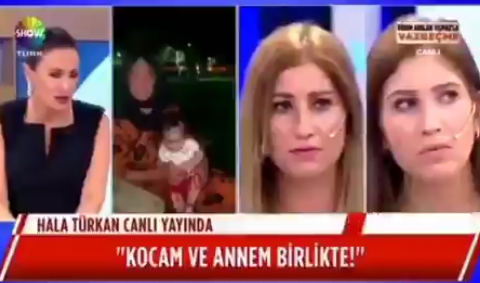In a recent interview with the TV channel Iran International, Amineh Kakabaveh – a Swedish politician of Iranian-kurdish descent – once more emphasized her experiences as a child soldier with Komala.
IKHRW would like to request ms. Amineh Kakabaveh to use her influence as a politician to sit down with her old comrades and ask them to release the underage fighters it currently holds in its ranks, and to prevent the recruitment of children by Komala today.
In pitch dark one night in 1991, some 50 people marched from Kurdish-controlled northern Iraq toward the Turkish border, unarmed and clad in traditional local attire. They were getting themselves smuggled to the European Union, a dangerous trip thousands of Kurds have gone on before and after them.
The young Kakabaveh, only 19 years old at the time, but a seasoned fighter, could have hardly imagined she was on a journey to a bright political career in Europe.
An Iranian Kurd, Kakabaveh belonged to the Revolutionary Society of Iranian Kurdistan’s Toilers, better known as Komala. She had joined its armed wing as a child to become a peshmerga, or a Kurdish guerrilla fighter. She was only 13 years old when she joined the group, and was given arms at age 14.
Born in Saqqez, western Iran, Kakabaveh was one of eight children. To help her parents make ends meet, she began working at an early age, selling handmade items or toiling at the farms of wealthy families. As several people around her joined Komala, the young Kakabaveh became interested in politics.
Defying her parents, the 13-year-old Kakabaveh joined the group and became a peshmerga. Komala was happy to receive all the recruits it could, and it did not matter to them she was a small child.
She left Iran for the Komala camps in the mountains of neighboring Iraq, where she also received military training as the Iran-Iraq War raged on. She was handed her gun at age 14, the age at which she became a full-blown fighter.
In March 1988, in the closing days of the war, Saddam Hussein’s regime dropped chemical gas bombs on Halabja, a Kurdish town near the Iranian border. Soon, the Komala camp near Ranya also came under a chemical attack, which claimed the lives of 37 group members. Kakabaveh, who was in a nearby area at the time, rushed to help her comrades but was injured from the poison gas herself.
She lost 72 other comrades in a second chemical attack that struck Komala members in the Sirvan region. During her six years with Komala, Kakabaveh had many brushes with death, as she was caught up in numerous air and ground attacks as well as clashes between rival Kurdish groups.
As a politician and opinion maker, Kakabaveh is involved with topics such as honour crimes, women’s rights and secularism. Her work has made her a controversial person within Swedish politics and her own Left party, but she has also received the title of “Swede of the year” as awarded by Fokus magazine.
Kakabaveh is also active in the field of human rights.
In 2019, she was threatened to be expelled from the Left Party as a result of a prolonged conflict with the party leadership. Before the issue was settled, she left the party voluntarily.
IKHRW would like to request ms. Amineh Kakabaveh to use her influence as a politician to sit down with her old comrades and ask them to release the underage fighters it currently holds in its ranks, and to prevent the recruitment of children by Komala today.










